#character development
Text
how does your oc like to do their hair?
89 notes
·
View notes
Text
10 More Character Types the World Needs More of
Part 1 was specifically character dynamics, but I’m considering this a sequel anyway.
1. Fiercely independent character’s lesson isn’t to “trust people”
I’m not projecting. You’re projecting. There is a divide wide enough to fit the Grand Canyon between “trusting that someone isn’t lying” and “trusting someone to follow through on a promise”. Most dumpster fire attempts at these characters (almost exclusively women) rely solely on mocking them for the former because “not all men” or something.
Being consistently let down in life makes you hesitant to a) gain friends, b) pursue romantic interests, c) maintain familial relationships, d) get excited about any event that demands participation from someone who isn’t you. None of this is simply a bad attitude—it’s a trauma response. There is no lesson to be learned, and not even exposure therapy can help because it’s a real, legitimate, and common stunt people pull, whether they mean it or not.
So write one of these characters and legitimize their fears, give them someone who proves the exception to the rule, but do not let the lesson be “well they just haven’t found the right person yet”. Even the “right person” can let them down. It's about not becoming a self-fulfilling prophecy by sabotaging a good thing to prove it will inevitably go bad.
2. Conventionally attractive men who aren’t horndogs
I’m going to find every way I can to tell you to write more aces. This is to fight the stigma that attractive people must be attracted to people. Give me gorgeous aces and demi’s, men, women, enbys and everyone in between, who put a crap ton of effort into looking their best, and yet happen to not have a very loud libido. They look good for themselves, and not to impress anyone else.
Give me someone who could have anyone they wanted, gender regardless, and just simply has no interest. Or, they do actually have a significant other, but sex, how hot their partner is, or how horny they are, isn’t their internal monologue. I don’t even care if it’s unrealistic, it’s annoying to read.
And, you know, giving men male characters who aren’t thinking about sex all the time can be good, right? Right?
3. Manly warrior men who also write poetry
A.K.A Aragorn, Son of Arathorn. Just give me more Aragorns, period. This dude is either covered in filth, blood, guts, and the last 30 miles of rugged terrain, or singing in Elvish at his own coronation while pink flower petals fall. A man can be both, and still be straight.
A man can also drink Respect Women juice, you know? He ticks off all the boxes—he’s gentle when he needs to be, not afraid to hide his emotions, kind to those who are vulnerable and afraid and need a strong figure to look up to, resolute in his beliefs, skilled and knowledgeable in his abilities without being arrogant or smug, and the first boots on the battlefield, leading from the front.
4. Characters who are characters when no one is watching
This is less a specific type and more a scene that doesn’t get written enough. This whole point comes from Pixar’s Cars. I. Love. This. Movie. It’s not Pixar’s best, for sure, but this is my comfort movie. The best scene, one that’s so unique, is when Doc (aged living legend) thinks he’s alone when he rolls out onto the dirt race track and comes alive tearing around the oval.
This character’s unbridled, unabashed glee and euphoria at proving to himself that he’s still got it, when he’s completely unaware of his audience, is perfection. Not enough credence is given to characters to just… enjoy being themselves. He’s not doing it to prepare for the climactic race, he’s not doing it for the plot, he’s doing it just to do it, not even to prove Lightning wrong—just for himself.
Give your characters a “Doc Racing” scene. Whatever their skill is. Maybe they’re a dancer, a skater, a swimmer, a painter, sprinter. Just let your character love being alive.
5. Characters whose neurodivergence isn't “cute”
A.K.A. Lilo Pelekai from Lilo and Stitch. Really, her relationship with Nani is peak sibling writing. But Lilo herself is just so realistic with how she interacts with the world, how she interprets her relationships with her so-called friends, how she organizes her thoughts and rationalizes what she can’t quite understand, and how friggen smart she is for an… 11-year-old?
But she’s not “cute”. As in, she wasn’t written by generic Suits who were trying to cash in on the ND crowd by writing what they think will sell, but also making her juuust neurotypical enough to still be palatable by the rest of the audience. Lilo’s earnestness is what endears her to everybody. But also, she doesn’t get a free pass for her behavior, either. Her “friends” aren’t forced to accommodate her and Nani isn’t written as the cold-hearted villain for trying to discipline her.
6. Straight male characters with female friends
Am I double-dipping a bit here? Yes. While I completely understand how tempting it can be, this type of character is in dire need of exposure and representation to prove it’s possible. No weird tense moments, no double-glances when she isn’t looking, no contemplations about cheating on his girlfriend (and no insecure jealous girlfriend either). Just two characters who enjoy each other’s company and are able to coexist in a space and be in each other’s spaces without hormones getting in the way. Peak example? Po and Tigress from Kung Fu Panda.
Let these two rely on each other for emotional strength in times of need, let them share inside jokes, let them have a night alone together at a bar, at home, cooking dinner, getting takeout, talking on the patio in a porch swing… with zero “will they/won’t they.”
7. The likable bigot
I’m actually on the fence with this one but it’s something I also don’t see done often enough and I’m adding it for one reason: Bigots aren’t always obvious mustache-twirling villains and the little things they do might seem inconsequential to them, but are still hurtful. So showing these characters is like plopping a mirror down in front of these people and, I don’t know, maybe something will click. They don’t have to be MAGAs to be dangerous, and only writing the extremes convinces the moderates that they aren’t also the problem.
Example: I have a “friend” who recently said something along the lines of “I have lots of gay friends” followed up shortly by “I don’t think this country should keep gay marriage because it’s a slippery slope to legalizing pedophilia.” You know. The quiet part being that she *actually* thinks being gay is as morally abhorrent as being a pedo. But she totally has lots of gay friends. Including one who was driving her during that conversation. (It’s me. Hi. I’m apparently the problem, it’s me.)
She’s absolutely homophobic, but the second she stops announcing it, she’s a very bubbly person. She’s a ~likable~ bigot and thus thinks she can distance herself from the more violent ones.
8. The motherly single father
I say “motherly” merely as shorthand for the vibe I’m going for here. “Motherly” as in dads who aren’t scandalized by the growing pains of their daughters, and who don’t just parent their sons by saying “man up boys don’t cry”. Dads who play Barbie with their kids of either gender. Dads who go to the PTA meetings with all the other Karens and know as much if not more than they do about the school and their kids’ education.
Dads who comfort their crying kids, especially their sons. Dads that take interest in “feminine” activities like learning how to braid their daughter’s hair, learning different makeup brands, going on nail salon trips together. Dads who do not pull out the rifle on their daughter’s new boyfriend and treat her like property. Dads who have guy friends that don’t mock him and call him gay. Dad who does all this stuff anyway and is *actually* gay, too, but the emphasis is on overly sensitive straight men’s masculinity here.
Wholesome dads: a shocking amount of single-parents to female anime protagonists.
9. The parent isn’t dead, they’re just gone
Treasure Planet is an awesome movie in its own right, but what’s even better? This is a Disney movie where the parent isn’t dead, he’s just a deadbeat who abandoned his son and isn’t at all relevant to the plot beyond the hole he left behind for Jim to fill. The only deadbeat dads Disney allows are villains and those guys are very vigorously chasing an aspiration, that aspiration just doesn’t include quality fatherhood. Or motherhood. Disney has yet to write a deadbeat mom, I’m almost certain.
I just wrote a post about the necessity of the “dead parent” cliche, but what is perhaps more relatable because it’s more common, and what earns even more sympathy and underdog points for the protagonist? The hero with the parent who left. Then there’s a whole extra layer of angst and trauma available when your hero can now plague themselves with the question of if the parent leaving is their fault. Death is usually an accident. Choosing to abandon your kid is on purpose.
10. Victim who isn’t victim-blamed or told by their friends (and the narrative) to forgive their abuser
Izuku Midoriya lost so much support from me the moment he told his friend, bearing the consequences of domestic violence across half his face, that Midoriya thinks he’ll be ready soon to forgive his abomination of a father. I am firmly in the “Endeavor is a despicable human and hero” camp and no I’m not taking criticism. I audibly gasped when I heard this line and realized Deku was serious. Todoroki needs friends like the Gaang to remind him that he's allowed to hate the man who's actions caused the burn scar across his f*cking face.
I understand that the mangaka apparently didn’t anticipate the vitriolic backlash toward Endeavor during his debut and reveal of his parenting tactics but the tone-deafness of telling a fifteen year old with crippling emotional management issues and a horrible home life that his abusive dad in any way deserves and is entitled to forgiveness on the grounds of being related is disgusting.
Take it back further to a more famous Tumblr dad: John Winchester. Another despicable human who got retroactively forgiven by his sons after his death in a “he wasn’t so bad, he really did try” campaign. It’s one thing if the character believes it, it’s a whole different matter if the narrative is also pushing this message.
Katara is a perfect example: She lets go of her grudge for her own peace of mind and stops blaming Zuko for something he had no hand in, stops blaming him simply because he’s a firebender and he’s around to be her punching bag. She doesn’t forgive the man who killed her mother, because that man doesn’t deserve her forgiveness. Katara heals in spite of him, not because of him, and had she let him off the hook, she would have gotten an apology for getting caught, not for what he did (which is exactly what happened).
#writing advice#writing resources#writing tips#writing tools#writing a book#writing#writeblr#character design#character development#aragorn#pixar cars#kung fu panda#lilo and stitch#treasure planet#atla#katara#my hero academia
66 notes
·
View notes
Text
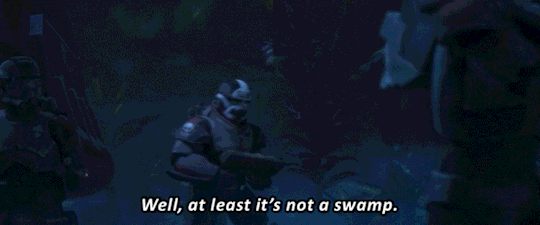
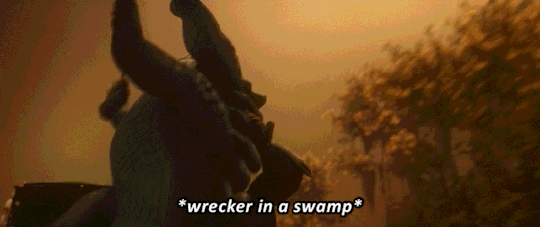
|| Wrecker & his swamp character development
S1.E1/S3.E8
#tbb wrecker#the bad batch#tbb spoilers#the bad batch season 3#the bad batch spoilers#tbb#star wars#character development#the bad batch wrecker#sw gif#tbb gif
53 notes
·
View notes
Note
hi!! just found your blog :))
so i've been wondering if you have any tips on writing characters in general. i feel like everytime i write, they're all the same (their internal dialogue are hardly different from each other) and rather boring and bland. do you have any advice for this issue? thanks <33
Hi, thanks for asking! It's a common challenge for writers, myself included, to create characters who feel vivid and distinct on the page—especially when there's a particular type of character that I enjoy writing more. This induces reluctance to explore and can make characters too similar in their mannerisms, quirks, and speech. Here are some tips to help you develop more dynamic characters:
Create detailed character profiles: Before you start writing, take some time to flesh out your characters. Think about their backgrounds, personalities, motivations, fears, desires, and quirks. The more you know about your characters, the easier it will be to make them unique.
Give each character a distinct voice: Pay attention to the way each character speaks and thinks. Consider their education, background, and personality when crafting their dialogue and internal monologue. Each character should have their own vocabulary, speech patterns, and mannerisms (see my post on character voices for more!).
Focus on contradictions: People are complex, and characters should be too. Think about the contradictions within each character. Maybe they're confident in public but insecure in private, or they're fiercely independent but secretly crave companionship. These contradictions add depth and realism to your characters.
Use character flaws: Flaws are incredibly important. They make characters more relatable and multidimensional, causing internal conflict and affecting their decisions, actions, and relationships. Give your characters weaknesses, insecurities, and vices that they struggle with throughout the story. These flaws can drive the plot and create opportunities for growth and development.
Explore character relationships: Characters are shaped by their interactions with others. Pay attention to the dynamics between your characters and how they influence each other. Conflict, friendship, love, and rivalry can all reveal different facets of your characters' personalities.
Give your characters goals: What does each character want, and what are they willing to do to achieve it? Their goals can drive the plot forward and provide insight into their motivations and priorities.
Consider the environment: Characters are influenced by their surroundings. Think about how factors like culture, society, family, and upbringing shape your characters' identities and behavior.
Allow for character growth: Characters should change and evolve over the course of the story. Give them opportunities to learn from their experiences, overcome challenges, and develop as individuals.
Read widely and observe people: Pay attention to how people behave in real life and in literature. Study how different authors create memorable characters, and consider what techniques you can apply to your own writing.
Check out this ask game for inspiration!
Hope this helped ❤
#ask#writeblr#writing#writing tips#writing advice#writing help#writing resources#creative writing#character development#character writing
44 notes
·
View notes
Note
I saw you answer an ask on Toy Story, which was super interesting, and also say:
"It’s an incredibly good movie series. Not Toy Story 4. But the rest of the series."
I didn't actually see Toy Story 4 because I felt the first three tied the story up very well, and we got a really good arc through those first three. It just felt unnecessary, and what I did see from it didn't make me eager to go out and watch it.
Could you expand on where you think Toy Story 4 goes wrong? If the other three convey selflessness, living and finding purpose, then what does that Toy Story 4 try to convey? Does it contradict the others?
I think Toy Story 4 goes wrong by trying to make Woody selfish. I mean, you could say that he isn't selfish to leave Bonnie and his friends and embrace the "Lost Toy" lifestyle. You could say "he just went from taking care of one kid who didn't really need him anymore to taking care of every lost kid who could need him, and finding lost toys homes. That's what was happening with the lost little girl at the end!"
Okay, you could say all that, but you'd be wrong, because 1) that is not what was happening at the end. And 2) even if it were, that is not a selfless ending for Woody. Furthermore 3) it undoes all his character development and progression from the first three.
You didn't see the fourth movie, right? So let me break it down a little.
Woody's character progression goes like this:
1: Obsessed with being The Most Important Toy to Andy --> Remembering that what's great about being a toy is being there for Andy when he needs them, regardless of how often or special that is.
2: Fine with no longer being The Most Important Toy to Andy, but considering leaving because Andy will eventually not need him, ever --> Realizing that being there means being there, even if it's just to watch and love from a distance, instead of protecting yourself to no end.
3. Committed to Being There even if he's not needed --> But this includes being there for his friends, even after they choose to abandon him and the mission. (It's important to note that Woody only offers ((by getting in the box to Bonnie's)) to leave Andy if Andy chooses to give him to a kid who needs him more.)

The whole idea is that Woody belongs to someone. He's not his own. He's a toy. Toys belong to their kid; they don't have the right to just leave. If they did, they'd be bad toys. Because you never know how much a kid will be heartbroken, or whether or not they might need you down the road. Every movie before Toy Story 4 is Woody doubting that, but then coming back to it. That's why in Toy Story 3, when everyone is in Andy's Room sad because he won't play with them and he's about to leave, Woody is totally onboard with staying in the Attic for years—because maybe they'll get to be played with by Andy's kids. He's loyal, and selfless, because he knows he's not his own. He's willing to go to Bonnie only because it'll mean staying with his friends where they're needed; but ONLY if ANDY willingly gives them up.
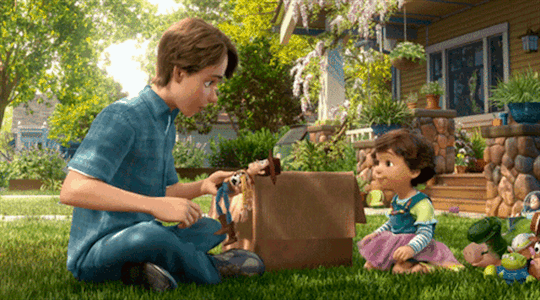
Enter Toy Story 4.
Woody's having a hard time adjusting to Bonnie's Room because 1) he doesn't get played with, his role in the games is taken by Jessie. So he's right back where he was in the first movie, stuck in a closet watching another toy get played with. And 2) Dolly is the leader of the room, so he's not even really allowed to be helpful to his friends during their off hours, because she's got that covered. So he feels directionless.
UNTIL Bonnie goes to school for the first time. She's not allowed to bring toys. Dolly is fine with this but Woody goes anyway because he's sure Bonnie will need something.
And in this beautiful first portion of character development for Woody, he does not sneak out of the backpack and get Bonnie to gain comfort from him, her one and only toy, at daycare. Even though he totally could've. He could've seized his moment in her heart. But he didn't. Because he already learned that lesson in Toy Story 1-3: he doesn't need to be everything to the kid. He just needs to do what's best for the kid, and to do that, he has to be there.
So instead he throws her a bunch of craft supplies to play with when nobody sits with her. She gets distracted by making Forky, a toy made from a spork and some pipe cleaner.

Bonnie is, from that moment on and throughout the rest of the movie, without exception, OBSESSED with Forky. There is no other toy in her mind. But Forky is a lot like Buzz was in the first movie after learning he's a toy: he doesn't understand what's so great about that, and would rather go back to being trash. He keeps trying to jump in garbage cans while Bonnie's family takes a road trip. And for some inexplicable reason, none of the other toys really care about this. But Woody, knowing what Bonnie needs, basically posts a 24-hour suicide watch on Forky and keeps pulling him back over to Bonnie, out of the trash.
The problem is, Woody isn't that excited about this. He is just doggedly resigned to it as his duty. He keeps rescuing Forky and getting no love in return; Buzz sort of tries to be supportive and offer to help, but nobody else seems to care about Bonnie and Forky, and Woody thinks this is his only way to be useful so he really doesn't want their help.
Which is stupid. Because if he were really committed to being selfless and loving Bonnie, he'd let everyone help. Because the point isn't "how will I feel if I fail to do this on my own? What's my purpose?" That's selfish. It's "you-focused." The point should be "How can we get this job done best for Bonnie?" with no consideration of "self." That would be selfless, which is the point of Toy Story movies.
Anyway. I'll speed up.
Basically by Act 2 Forky comes to understand (thanks to Woody) how great it is to be a toy. But no sooner does he want to go back to Bonnie (on the road trip) than Woody suddenly gets distracted. His whole life's mission of doing what's good for his kid is derailed because he finds Bo Peep again. Meanwhile, Forky is captured by a villainous antique doll with no voice box, who is fixated on being bought by a little girl and thinks that if she had Woody's voice box her dreams would come true.
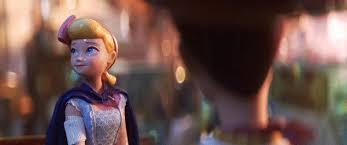
Bo Peep has been living as a Lost Toy. Basically the movie sets this up as if Lost Toys take care of each other, patching up injuries and having fun together even when no kids are around: they're just doing the same sort of thing that the reformed toys at Sunnyside Daycare do. But in a playground/fairground setting.
Bo Peep doesn't want to be with one kid. She wants to keep doing this more selfish lifestyle, where she can be played with whenever she wants, help toys whenever she wants, and avoid the heartbreak of a kid abandoning her.
Understandable.
But thats the opposite of everything Woody's learned in the last three (and a half) movies. He could've made the decision Bo Peep is making at any point in Andy's childhood. But he's already learned that being there means Being There, regardless of what the kid can do for you.
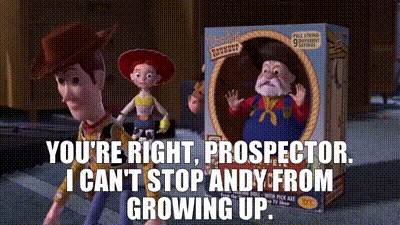

I mean, I hate to point it out, because I know people will try to make it an allegory for "staying in an abusive situation," even though that's NOT what I'm saying, but seriously—think back to Sid's House in the very first movie. They don't lead all the broken toys to a life of freedom. They force Sid to be a better kid, but the broken toys stay there. Because they're Sid's Toys.
Contrast that with the "hardship" Bo Peep has been through...Bo Peep just...got pawned off. She didn't have body parts removed and sewn onto other toys. She didn't get strapped to a firework or melted down. But she's treated like this revolutionary, independent, strong-woman toy who's introducing this great concept of freedom to Woody.
That's all wrong for Woody. And for most of the movie, he resists it, so that's good.
But what it comes down to, at the end, is Woody deciding to choose what he wants over his ideals of selflessness and loyalty. He wants to stay with Bo Peep (because romance) and he wants to be needed. Lost Kids and Toys "need" him more than Bonnie.
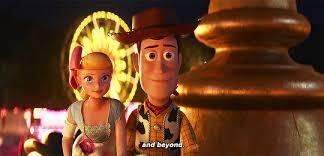
To be fair, they try to build up to this in a way that makes sense for his character. They try really hard, they do. They show that Woody is still selfless when it comes to the happiness of kids and toys; he willingly gives up his voice box so that Forky can go back to Bonnie, and the doll villainess can have a shot at her dream. They show that he's ready to support that villainess and help her find a kid she could be true to even after the kid she wanted rejects her. They show that he really was going to leave Bo, even at the very end, even though he didn't want to—and it takes Buzz insisting that Bonnie will "be all right" without him for Woody to give it all up.
They do try.
But that's the thing. The only way they could set up Woody's decision to abandon his friends and his kid for life as a Lost Toy was by centering it around this idea of "where I'm needed."
But 1) "where I'm needed" is too self-focused for Woody, because of all the reasons in Toy Story 2 and 1, and 2) you can't have it both ways. You can't say Woody's all about "where he can be of service best" and all about "what he wants." Those two focuses contradict one another, in Woody's case.
That's what it boils down to. They took the characters that are literally made to say, "live your life for others, love regardless of whether or not you're loved back," and they try to say, "nooo, actually, that's toxic, you have to do what you want, what feels most fulfilling to you, self-care, etc." And they do their best to shoehorn Woody into that by saying "what he's most fulfilled by is being needed."
That's all wrong for Toy Story. Woody developed away from making all his decisions based on where he's "needed" in Toy Story 2. Woody expressed loyalty to both Andy and his friends perfectly in Toy Story 3 by putting himself in Bonnie's box and letting Andy decide, his owner decide, where he should be.
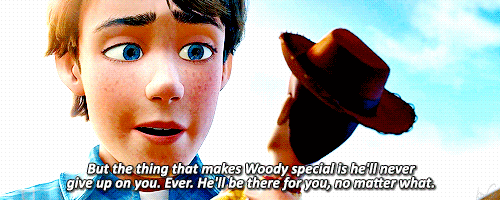
And then Toy Story 4 comes along and says, "No, Woody gets to decide, and he decides where he's needed, and he's fine with separating from not only his kid, but his friends."
This post is already too long but also, if you try to spin it so Woody's still in-character and selfless by helping Lost Toys find kids, it starts to make no sense. If the Lost Toy lifestyle is so great, because you can pick up playtime with kids and put it back down whenever you feel like it—and you should, because kids will always get older and throw you out—why should Woody ever help Lost Toys find a kid to go home with? Why wouldn't he say, like Bo, "hey that's nice but eventually they'll grow up, it's a dead-end, just stay out in this playground with us. That's what's best for you. Be a Lost Toy like us."
The only possible answer to that question, which IS supposedly Woody's fulfilling ending, is, "Because maybe some toys just 'want' to go home with one kid. And if they do, they should be allowed to do what they want. And Woody can help them, because helping them is what he wants."
Allll back to "what YOU want" which is the opposite of being a toy. Anyway. The horse is dead, I'll quit beating it.
#Toy Story 4#Toy story#Toy Story 4 hate#Toy Story 4 love#Bo peep#woody#buzz#buzz lightyear#Tom hanks#Tim Allen#Pixar#sequels#Rex#Jessie#slinky#potato head#ham#forky#Andy#Bonnie#key and peele#meta#character development#analysis#character growth#critique
34 notes
·
View notes
Note
You say you didn't realize how simp-worthy Sawyer would be, but did you at least anticipate how simp-worthy Turner would be? Because let me tell you. He is so fucking hot. He's so bbygirl. He's soooo <333 I want him so bad
Never would turn my back on Mal for him ofc but that's more a testament to how perfect Mal is than how down bad I am for Turner
Awwwww, my first Turner simp. That man cracks me up. He is also one of the first characters I have written where he reacts badly in almost every single situation without intending to. He gets overwhelmed so quickly by situations he wasn't anticipating and lets face it, that's just the Night Market.
But he can be so sweet later. When he's calmed down. And he cares so deeply for the ones that he considers his family.
#the night market#artisan alley#turner#character development#interactive fiction#twine if#twine wip#book 2
25 notes
·
View notes
Text
If someone accused your character of "not being human", what would they respond/think?
#oc#character development#oc tag#original character#tag your oc#villain oc#villain#antihero#story#characters#dialogue prompt#dialogue#story prompt
24 notes
·
View notes
Text
Good Traits Gone Bad
Exploring good traits gone bad in a novel can add depth and complexity to your characters. Here are a few examples of good traits that can take a negative turn:
1. Empathy turning into manipulation: A character with a strong sense of empathy may use it to manipulate others' emotions and gain an advantage.
2. Confidence becoming arrogance: Excessive confidence can lead to arrogance, where a character belittles others and dismisses their opinions.
3. Ambition turning into obsession: A character's ambition can transform into an unhealthy obsession, causing them to prioritize success at any cost, including sacrificing relationships and moral values.
4. Loyalty becoming blind devotion: Initially loyal, a character may become blindly devoted to a cause or person, disregarding their own well-being and critical thinking.
5. Courage turning into recklessness: A character's courage can morph into reckless behavior, endangering themselves and others due to an overestimation of their abilities.
6. Determination becoming stubbornness: Excessive determination can lead to stubbornness, where a character refuses to consider alternative perspectives or change their course of action, even when it's detrimental.
7. Optimism becoming naivety: Unwavering optimism can transform into naivety, causing a character to overlook dangers or be easily deceived.
8. Protectiveness turning into possessiveness: A character's protective nature can evolve into possessiveness, where they become overly controlling and jealous in relationships.
9. Altruism becoming self-neglect: A character's selflessness may lead to neglecting their own needs and well-being, to the point of self-sacrifice and burnout.
10. Honesty becoming brutal bluntness: A character's commitment to honesty can turn into brutal bluntness, hurting others with harsh and tactless remarks.
These examples demonstrate how even admirable traits can have negative consequences when taken to extremes or used improperly. By exploring the complexities of these traits, you can create compelling and multi-dimensional characters in your novel.
Happy writing!
#character traits#writing#writing tips#character development#writer on tumblr#writerscommunity#writer tumblr#writblr#writing advice#oc character#writing help#creative writing
50K notes
·
View notes
Text
oc asks: not-so-nice edition
alone: How does your OC deal with loneliness? Have they ever been completely alone before? How do they act when there's no one around to see them?
betrayal: Has your OC ever been betrayed by someone they thought they could trust? Has your OC ever betrayed someone who trusted them?
bound: Has your OC ever been imprisoned or captured? What happened? How did they get out? Did the experience leave any scars?
break: What would cause your OC to break down completely? What do they look like when that happens? Has anyone ever seen them at their lowest?
desire: What's one thing your OC wants more than anything in the world? Are they open with that desire? Why or why not? What would they do to fulfill it?
failure: What's your OC's greatest failure? Have they been able to move past it? Does anyone else know about it?
fear: What is your OC's greatest fear? What do they do when confronted with it? Are they open with their fear, or do they hide it away?
future: What's the worst possible future for your OC? Are they taking steps to avoid that outcome? Are they even aware it's a possibility?
ghost: Who or what haunts your OC? What happened? How do they live with their ghosts?
guilt: What is your OC guilty about? How do they handle their guilt? Do they try to avoid guilt, or do they accept it?
hate: What does your OC hate? Why? How do they act towards the object of their hatred?
heartbreak: Have they ever had a relationship that ended badly? Experienced some other kind of heartbreak? What happened?
hide: What does your OC hide? Why do they hide it?
hunt: Who or what is your OC hunted by? A person, a feeling, a past mistake? Is your OC able to let their guard down, or are they constantly alert?
mask: Does your OC wear a mask, literally or figuratively? What goes on beneath it? Is there anyone in their life who gets to see who they are under the mask?
midnight: What keeps your OC up at night? Do they have nightmares? Fears? Anxieties? What do they do in the small hours of the morning when they should be sleeping?
mistake: What's the worst mistake your OC ever made? What led to them making it? Have they been able to fix it? How have they moved on?
monster: Is your OC monstrous in any way? Is there something that makes them monstrous? Are they aware of their own monstrosity? Do they accept it or reject it?
nightmare: What does your OC have nightmares about? How do they deal with their nightmares? Do they tell people, or keep it to themself?
pain: What's the worst pain your OC has ever felt? Do they have a high pain tolerance?
secret: What's one secret your OC never wants anyone to know about them?
skin: How comfortable is your OC in their skin? Do they grapple with anything that lives inside them—a beast, a curse, a failure, a monster? How do they face the smallest, weakest, most horrible version of themself? Are they able to acknowledge it at all?
torture: Has your OC ever been tortured? Would your OC ever torture someone else?
wound: How does your OC handle being wounded? Are their wounds mostly physical? Mental? Emotional? What's the worst wound your OC has ever experienced?
#whump#whump ask#oc asks#oc ask game#oc ask prompts#oc ask meme#ask meme#ask game#character asks#character development#mine; ask meme#meme resource#please feel free and encouraged to reblog! or to send asks but I probably won’t get to them til next week#now with minor edits for clarity!
11K notes
·
View notes
Text
Want quick tips to add instant chemistry to the relationships of your characters??
(🥳With examples🥳)
First of all, I want to say that you can also use most of them for platonic/ non-romantic relationships, so feel free to use this tips however you think they might work better in your story. So, without further adue, let's get to the tips!!!
Make your characters LISTEN to each other. Like, if A tells B they're not a morning person, B could make some coffee for A or lower the volume of their alarm.
This might sound quite obvious, but show that you characters care for each other. It might be as simple as one of them giving the other a glass of water when they feel a little dizzy, but it works wonders!
Make your characters physically close. When you are emotionally close to someone, you tend to be physically close too. But here is the thing. Make your characters react like it's second nature: "how would I not hug B when I haven't seen them in days?" or "Of course I'm gonna take A's hand when I feel insecure".
They don't have to be constantly thinking about each other, but when they do, MAKE IT MATTER!! For example, character A is out shopping, and they see B's favorite cookies. B didn't have a good day, and A knows that. But A also knows B is gonna fucking love the cookies, so they buy some.
Let them believe and trust each other. Also applies if one of them is a little distrustful: let your characters rely on one another, even if at the start they aren't as comfortable doing it. For a distrustful character, letting the other one help with chores might be a HUGE thing.
Other tips for writers: previous | next
#writeblr#writing#writer#writers#writers of tumblr#writers on tumblr#writerscommunity#original character#character development#character dynamics#main character#chemistry between your characters#writing tips#tips for writers#character tips#tips#creative writing
3K notes
·
View notes
Text
which oc is a hypocrite?
93 notes
·
View notes
Text

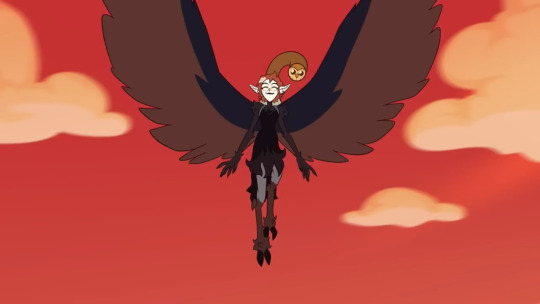
Lilith accepted that she wasn’t an inferior sister, and finally got recognized for what she could do.
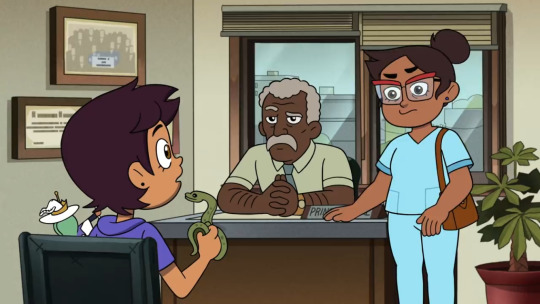

Camila realized the way she was treated was wrong, and by loving her daughter, she got to love herself.

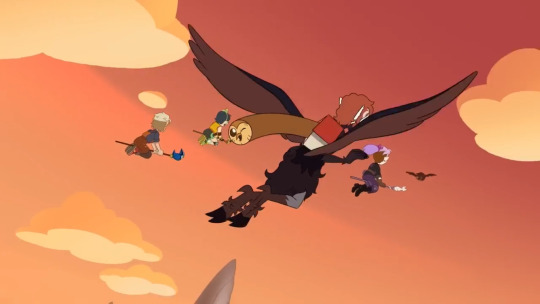
Hooty was a misfit among misfits, but was finally valued by the rest, and got another misfit as a friend.
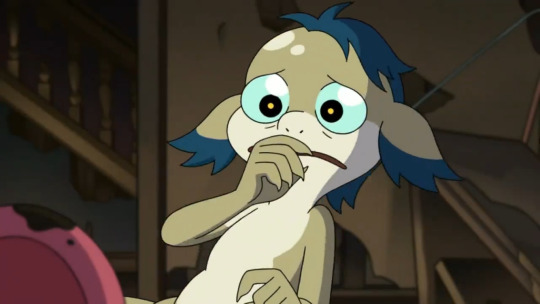
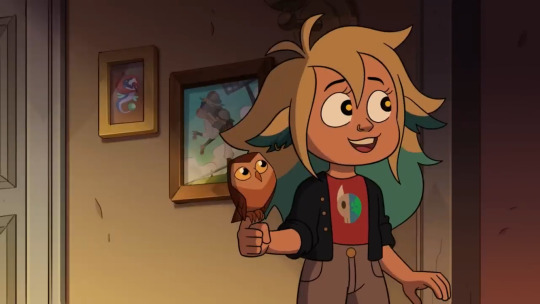
Vee recovered from her trauma and didn't have to hide who she was, finding her own face without having to copy others.
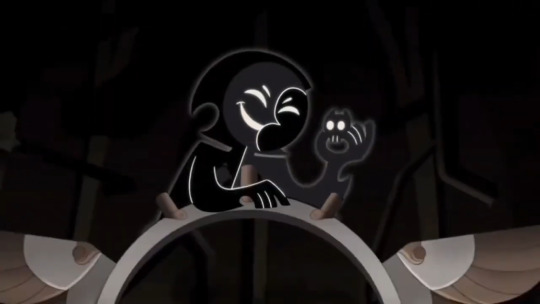

The Collector learned they couldn't force friendship from others, and gained a better understanding of life.
#the owl house#lilith clawthorne#camila noceda#the owl house hooty#vee noceda#the owl house collector#character development
22K notes
·
View notes
Text
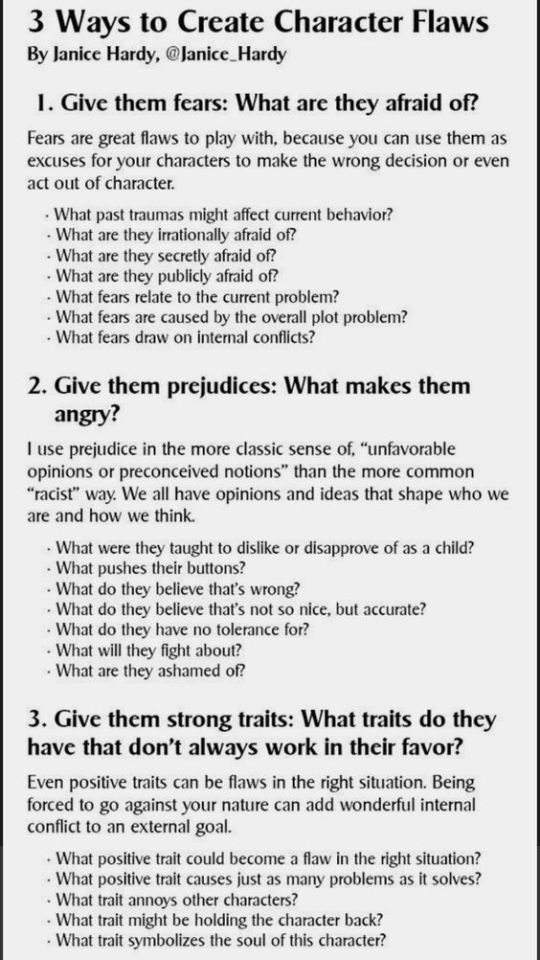
#writing community#writer things#novel writing#writerslife#writers on tumblr#writerscommunity#writing#writers#writers and readers#writing tips#character development#character design#character concept#character sheet
5K notes
·
View notes
Note
Hello! I've been enjoying your writing posts a lot. Here's my question: How do you exactly write a character profile? Getting one from the internet feels like feeling out a resume, but trying to create one myself leaves me hanging in with the question “what should I be putting here?”
Thanks for asking! Crafting a character profile can indeed feel like navigating a nebulous space, but it's a crucial step in fleshing out your characters and getting to know them better. Here's a breakdown of what you might include:
Basic Information: Start with the essentials - name, age, gender, and any other pertinent demographic details.
Physical Description: Provide a brief overview of what your character looks like. This could include height, build, hair color, eye color, distinguishing features (scars, tattoos, etc.), and typical clothing choices.
Personality Traits: Think about your character's temperament, quirks, strengths, weaknesses, likes, dislikes, and any notable personality traits. Are they introverted or extroverted? Optimistic or pessimistic? Adventurous or cautious?
Background: Delve into your character's backstory. Where were they born? What was their upbringing like? Do they have any significant life events that have shaped who they are today?
Motivations and Goals: What does your character want? What are their ambitions, desires, and fears? Understanding what drives your character can add depth to their actions and decisions within your story.
Relationships: Explore your character's connections with others. Who are their family members, friends, enemies, or love interests? How do these relationships influence your character's actions and emotions?
Skills and Abilities: What is your character good at? What are their areas of expertise? Do they have any special talents or abilities that set them apart?
Character Arc: Consider how your character will change and grow throughout your story. What obstacles will they face, and how will they overcome them? What lessons will they learn along the way?
Internal Conflicts: What internal struggles does your character grapple with? These could be doubts, fears, moral dilemmas, or unresolved traumas.
External Conflicts: What external challenges does your character face? These could be adversaries, societal pressures, or environmental obstacles.
Another thing I like to do is find an online personality test, like 16Personalities or Truity, and fill it out on behalf of my character. Both the process and the results can give further insight. Websites such as Campfire have full character profiles that you can complete. Or try filling out this character ask game!
Remember, this is just a starting point, and you can tailor your character profile to fit your specific needs and preferences (e.g., fighting style, fantastical conditions, supernatural abilities, character archetypes, interpersonal values, leadership style, phobias, habits, etc.). Feel free to add or omit sections as necessary, and don't be afraid to let your characters surprise you as you write!
#writeblr#writing#writing tips#writing advice#writing help#writing resources#creative writing#character development#character description#character traits#character design
42 notes
·
View notes
Text
WEIRDLY SPECIFIC BUT HELPFUL CHARACTER BUILDING QUESTIONS
What's the lie your character says most often?
How loosely or strictly do they use the word 'friend'?
How often do they show their genuine emotions to others versus just the audience knowing?
What's a hobby they used to have that they miss?
Can they cry on command? If so, what do they think about to make it happen?
What's their favorite [insert anything] that they've never recommended to anyone before?
What would you (mun) yell in the middle of a crowd to find them? What would their best friend and/or romantic partner yell?
How loose is their use of the phrase ‘I love you’?
Do they give tough love or gentle love most often? Which do they prefer to receive?
What fact do they excitedly tell everyone about at every opportunity?
If someone was impersonating them, what would friends / family ask or do to tell the difference?
What's something that makes them laugh every single time? Be specific!
When do they fake a smile? How often?
How do they put out a candle?
What’s the most obvious difference between their behavior at home, at work, at school, with friends, and when they're alone?
What kinds of people do they have arguments with in their head?
What do they notice first in the mirror versus what most people first notice looking at them?
Who do they love truly, 100% unconditionally (if anyone)?
What would they do if stuck in a room with the person they've been avoiding?
Who do they like as a person but hate their work? Vice versa, whose work do they like but don't like the person?
What common etiquette do they disagree with? Do they still follow it?
What simple activity that most people do / can do scares your character?
What do they feel guilty for that the other person(s) doesn’t / don’t even remember?
Did they take a cookie from the cookie jar? What kind of cookie was it?
What subject / topic do they know a lot about that’s completely useless to the direct plot?
How would they respond to being fired by a good boss?
What’s the worst gift they ever received? How did they respond?
What do they tell people they want? What do they actually want?
How do they respond when someone doesn’t believe them?
When they make a mistake and feel bad, does the guilt differ when it’s personal versus when it’s professional?
When do they feel the most guilt? How do they respond to it?
If they committed one petty crime / misdemeanor, what would it be? Why?
How do they greet someone they dislike / hate?
How do they greet someone they like / love?
What is the smallest, morally questionable choice they’ve made?
Who do they keep in their life for professional gain? Is it for malicious intent?
What’s a secret they haven’t told serious romantic partners and don’t plan to tell?
What hobby are they good at in private, but bad at in front of others? Why?
Would they rather be invited to an event to feel included or be excluded from an event if they were not genuinely wanted there?
How do they respond to a loose handshake? What goes through their head?
What phrases, pronunciations, or mannerisms did they pick up from someone / somewhere else?
If invited to a TED Talk, what topic would they present on? What would the title of their presentation be?
What do they commonly misinterpret because of their own upbringing / environment / biases? How do they respond when realizing the misunderstanding?
What language would be easiest for them to learn? Why?
What’s something unimportant / frivolous that they hate passionately?
Are they a listener or a talker? If they’re a listener, what makes them talk? If they’re a talker, what makes them listen?
Who have they forgotten about that remembers them very well?
Who would they say ‘yes’ to if invited to do something they abhorred / strongly didn’t want to do?
Would they eat something they find gross to be polite?
What belief / moral / personality trait do they stand by that you (mun) personally don’t agree with?
What’s a phrase they say a lot?
Do they act on their immediate emotions, or do they wait for the facts before acting?
Who would / do they believe without question?
What’s their instinct in a fight / flight / freeze / fawn situation?
What’s something they’re expected to enjoy based on their hobbies / profession that they actually dislike / hate?
If they’re scared, who do they want comfort from? Does this answer change depending on the type of fear?
What’s a simple daily activity / motion that they mess up often?
How many hobbies have they attempted to have over their lifetime? Is there a common theme?
#rp memes#rp prompts#rp meme#roleplay prompts#ask box meme#askbox meme#inbox meme#character help#character development#rpc#rph#judasrpc
50K notes
·
View notes
Text
Feelings Wheel
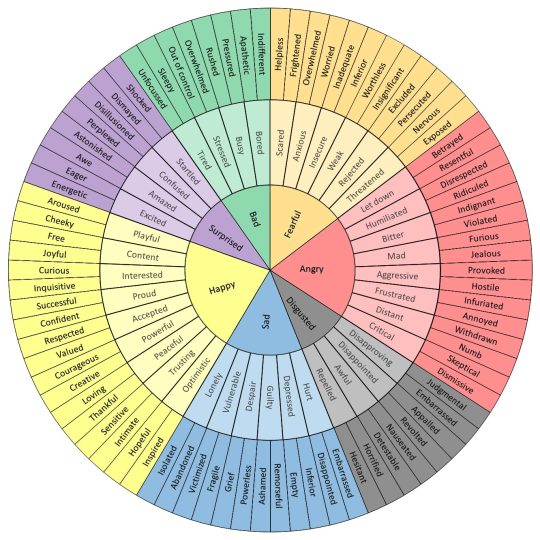
This is the feelings wheel by Geoffrey Roberts, shown to me by my therapist. My initial thought was, "what amazing synonyms to use for diverse emotional vocabulary!"
More than that, this wheel is great for understanding your characters inner motivations and reactions to situations. For example, if a character constantly feels helpless, then their overarching characteristics will be that they are fearful.
Characters who are less emotionally aware may use words and act in the inner most circle. Those much more aware of their emotions may describe themselves or express and use words from the outer most circle.
Hopefully you guys find this as helpful as I did! Let me know down in the comments.
Happy Writing!
#creative writing#character development#emotional growth#emotional intelligence#novel writing#story writing#tumblr writers#writing community#writer things#writing advice#writing tips#writing resources
8K notes
·
View notes